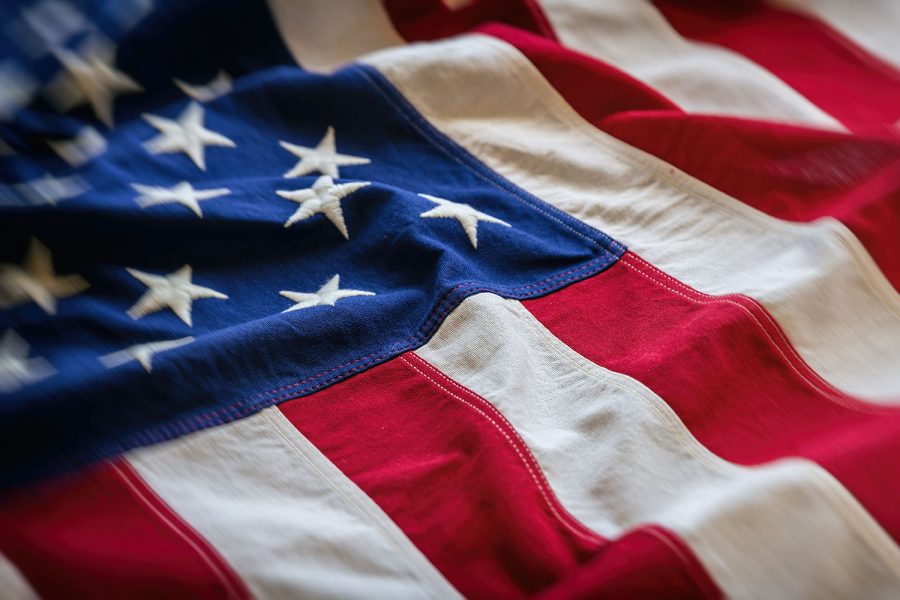Opinion | We don’t need legislature enforcing the Pledge of Allegiance
Iowa legislators should not be concerned with students standing and reciting the pledge of allegiance daily, especially when there are other crises that need more attention.
USA flag detail, closeup view. American flag background texture.
March 2, 2021
A bill, sponsored by GOP state Rep. Carter Nordman, of Adel, passed in the Iowa House requiring public and some private K-12 schools to show the flag and recite the Pledge of Allegiance every day. Although many people have concerns, the bill had support from both sides with claims of unifying the country.
Having children mindlessly recite the Pledge of Allegiance daily does not institute more unity or encourage critical thinking. It merely drives students to recite weightless words that are more than a century old.
If students are being required to stand and pledge their allegiance to the American flag, they should also be required to learn about the history behind those words.
The original Pledge of Allegiance was written by Minister Francis Bellamy in 1892. At that time, it was intended to be applicable to any nation. In the original pledge, there was no mention of God or the United States. It was not until 1923 that the “United States of America” was added to the pledge. “Under God” was also added later to the pledge by President Dwight Eisenhower because of communist threats.
Today, we aren’t asking people to honor the original pledge because there have been amendments since distorting the meaning and origin. It’s important to understand the origins of the pledge as well as how it has evolved over time.
In addition, many LGTBQ students and students from underrepresented groups feel disenfranchised in this country. When encouraging students to recite statements like “liberty and justice for all” daily, we should be recognizing how this statement doesn’t apply to all Americans. Students should be able to have discussions about the true implications of liberty and justice in this country today and through history.
The pledge was written in 1892, a few decades after the Emancipation Proclamation was issued that abolished slavery. This was also right in the midst of segregation and Jim Crow laws, which were not abolished until the 1960s. There was no such thing as “liberty and justice for all” at the time the pledge was originally written, and today we continue to struggle with this assertion.
Disparities between minorities and white people in Iowa are incredibly stark. For example, this is clear looking at Iowa’s incarceration rate, where 1.7 percent of all Black Iowans are incarcerated in contrast only 0.2 percent of white Iowans are. It’s concerning that we are more focused on children mindlessly reciting these words than there being any truth behind them.
In addition to the faulty origins and meaning of the pledge, Iowa has more pressing issues it needs to be facing. According to the New York Times COVID-19 tracker, Iowa is among several other states who have been identified as having a high number of COVID-19 cases.
While introducing the bill, Nordman said, “We don’t pledge our allegiance to a government. We don’t pledge our allegiance to a person or leader. We pledge our loyalty to an idea, the American idea.”
I’m not sure what the American idea is, especially when legislators seem to be more focused on pleading our loyalty to a flag and micromanaging education than protecting and supporting Iowans. The Pledge of Allegiance is thought to be a means of unity and pride for Americans when in reality many minorities struggle with inequality and injustice.
Columns reflect the opinions of the authors and are not necessarily those of the Editorial Board, The Daily Iowan, or other organizations in which the author may be involved.





